Introduction:
Depression is a mental disorder that can cause a person to feel sad, hopeless, and worthless. It can also lead to weight gain and lack of interest in activities that were once enjoyed.
Depression meaning
The word ‘dipression’ is a combination of ‘direction’ and ‘depression’. It refers to the state of being pulled in a particular direction. It can be used figuratively to refer to a strong desire or attraction to a particular activity, person, place or thing. If your mind is constantly being pulled in the direction of negative thoughts and emotions, it is said that you are in a state of dipression.
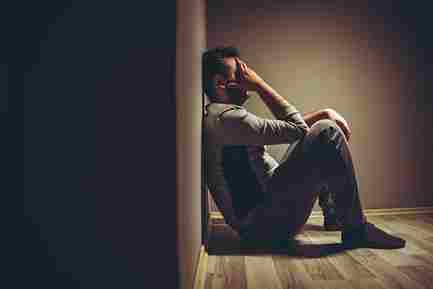 |
| Dipression |
Dipression is a grammatical term that refers to a certain grammatical use of the word to. Dipression is a grammatical term that refers to a certain grammatical use of the word to. It is used to indicate direction of motion or action. For example, the sentence “The car was moving towards the house” uses the word to to indicate the car was moving from the house to the car.
The meaning of the word dipression is the turning away of something. The word is a combination of the words direction and depression, which are both in the root word direction. For example, the word depression is a dipression from the word direction. The word dipression is one of the most common words in the English language, and is used all the time.
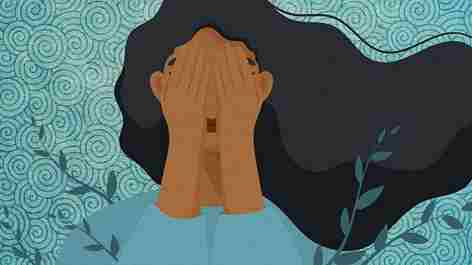 |
| Dipression |
Dipression is a word that means a state of depression or a state of depression-like emotion. It is a state of mind that can be caused by various factors. It is often used to describe a feeling of sadness or a state of sadness-like emotion. Dipression is also used to describe a state of low energy, similar to a state of depression, but without the negative thoughts and feelings that come with the depression.
The word dipression can be defined as a state of depression or sadness. It is derived from the word depression and the word impression. The word depression is a noun and it refers to the condition of the mind or emotional state in which someone feels low, depressed, or hopeless. The word impression is a noun and it refers to the state of being affected by something such as an idea, emotion, or situation.
Types of dipression
Definitions of depression vary depending on the person, their background, and the circumstances. The American Psychiatric Association defines depression as a state of mind where a person experiences a range of symptoms that interfere with their day-to-day life. Depression can be a single episode or a series of episodes, with periods of wellness in between. It influences the manner in which an individual thinks, feels, acts, and capacities.
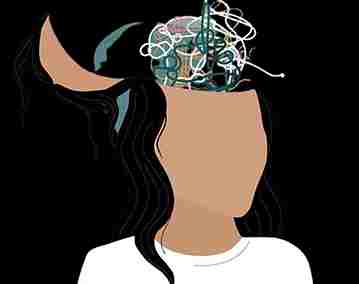 |
| Dipression |
Depression is a state of feeling sad, empty and hopeless. It influences the manner in which an individual thinks, feels, acts, and capacities.. It also has a huge impact on a person’s life and the lives of those around them. It can make a person feel like life isn’t worth living and can lead to thoughts of suicide.
 |
| Depression |
What is depression? Most of us have experienced the feeling of being sad or losing interest in things that we usually enjoy. This is an example of a passing mood – one that will likely improve by itself. But sometimes the sadness and lack of interest becomes a lot more than just a feeling.
Depression is a condition that affects the mind and causes a persistent feeling of sadness and a loss of interest and pleasure in everyday life. There are two types of depressions, first unopiler and second bipolar .
Bipolar disorder, also known as manic depression, causes extreme mood swings, with periods of feeling very high and excited, called mania, alternating with periods of depression. Unipolar disorder causes only periods of depression, without the manic episodes of unipolar disorder.
 |
| Depression |
Depression is a mental health condition that causes a persistent low mood and a range of other symptoms. It's a type of mental health condition called a "dipression
What are the Symptoms of Depression?
Depression is a complex condition that has a wide range of symptoms. The most common symptoms of depression are:
• Feeling sad, anxious, or empty
• Loss of interest and pleasure in usual activities
• Changes in appetite and sleeping patterns
• Persistent "black" mood and other mood changes
• Fatigue, low energy, and lethargy
• Feelings of worthlessness and inappropriate guilt
• Difficulty concentrating, making decisions, and completing tasks
• Restlessness and irritability
• Feelings of hopelessness and despair
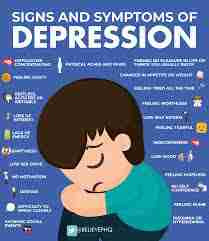 |
| Depression |
Have you ever felt sad for no reason, or had a persistent sense of emptiness? If so, you may have been experiencing a bout of depression. Depression is a mood disorder characterized by persistent sadness and a sense of hopelessness. Unlike a passing sad mood, which is a normal reaction to an unfortunate event, depression requires professional treatment to help the body feel better.
Depression is a serious medical condition, not just a case of the blues. It affects how you think, feel, and behave, causing a wide range of symptoms. The severity of these symptoms varies from person to person. Some people may only experience a few of them, while others may experience many.
Depression is a complex health condition that affects people in very different ways. The symptoms of depression can range from feeling sad, anxious, or stressed, to experiencing physical symptoms such as headaches, insomnia, and muscle pain. Some people may experience a combination of these symptoms. Others may only have some of the symptoms of depression.
Depression is a complex disorder with a variety of possible symptoms and causes. Depression can affect people in many different ways, and the same person may experience different symptoms at different times. The symptoms of depression can vary widely from person to person, and they can range from mild to severe. Some of the most common symptoms of depression include:
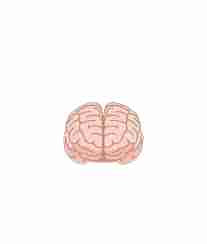 |
| Depression |
What Causes Depression?
Depression, also known as major depressive disorder, is a mood disorder that causes a persistent feeling of sadness and a sense of being overwhelmed. It affects the way a person thinks, feels, and behaves, and how he or she functions in everyday life. Depression is not a single disorder but a wide range of illnesses with different causes, symptoms, and courses. Some causes of depression include genetics, brain chemistry, and life experiences.
 |
| Depression |
Depression is a disorder that affects the way a person feels, thinks, and behaves. It is a common mental health disorder, affecting millions of people of all ages. Depression is not a single disorder but a range of conditions that can affect a person’s thoughts, behavior, and physical well-being. The most common type of depression is called major depression, which affects a person’s mood and causes a persistent feeling of sadness and a loss of interest and pleasure in normally pleasurable activities.
Depression, also known as clinical depression, is a mood disorder that causes a persistent feeling of sadness and a range of other symptoms. It affects the way a person thinks, feels, and behaves. Depression is a condition, not a sentence of life. It is a condition that can be treated.
 |
| Depression |
We all feel sad or down in the dumps once in a while. But when the blues last for days or weeks and interfere with your ability to function, you may have depression. Depression is a complex, far-reaching disease affecting not only your mood but also your ability to think and make decisions, feel pleasure and connect with others, and function in everyday life. We don’t know exactly what causes depression, but we do know that genes, environment, and brain chemistry are all involved.
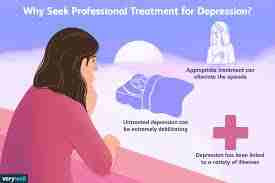 |
| Depression |
Depression is a mood disorder that can make life feel overwhelming and impossible. More than 16 million Americans suffer from depression every year, but despite its prevalence, the causes of depression are still largely a mystery. It's clear that genetics have a lot to do with whether a person will develop the disease, but figuring out which genes are involved has been a challenge. Researchers have spent decades searching for the genes responsible for causing depression, and today, they're finally starting to turn up some answers.
How is Depression Treated?
Depression is a complex disease that can affect people in many different ways. It can make you feel sad, anxious, or completely numb. It disrupts your life, making it hard to go to work, take care of your family, or enjoy the things you love. If you’re living with depression, you may feel as though there’s no way out.
 |
| Depression |
You’ve probably heard the saying “nothing helps a headache like a aspirin.” Well, the same can be said for depression. Depression is a complex condition, and treating it isn’t as simple as popping a pill. But there are plenty of ways to help ease the symptoms of depression and improve your quality of life.
Depression is a common mental health disorder that causes a persistent feeling of sadness and a loss of interest in life. It affects millions of people of all ages and backgrounds. Depression is usually treated with medication, but there are also other options, such as talking therapies and lifestyle changes. Together, these treatments can help reduce the symptoms of depression and improve your quality of life.
Depression is a medical condition that affects the brain. It is often caused by a chemical imbalance in the brain, which causes severe symptoms that affect the way a person feels, thinks, and behaves. Fortunately, there are many ways to treat depression. One of the most common ways to treat depression is through medication.
 |
| Depression |
Depression is a serious medical condition with a variety of potential causes, including genetics, brain chemistry, and life experiences. Treatment for depression can be effective when tailored to the unique needs of each individual. The first step in treating depression is to identify the cause and then develop a treatment plan that fits those needs. For some people, medication can help lift the symptoms and provide an opportunity for the brain to start healing.
How Can Depression be Prevented?
Depression is a serious illness that can occur at any age, but it’s more common in older people. It’s also more likely to occur in people who have a personal or family history of depression. Depression can’t be cured, but it can be treated. There are things you can do to help prevent depression from happening.
 |
| Depression |
Depression is a serious illness that can happen to anyone. It’s common, affecting more than 350 million people worldwide. It’s also completely preventable — but only if you catch it early. That’s why it’s so important to know the warning signs and how to get help early.
Depression is a serious illness that can have a devastating impact on your physical and mental health. While there is no known way to prevent depression, there are things you can do to help reduce your risk of developing it. This article will provide an overview of depression and its symptoms, as well as discuss some of the risk factors that may place you at risk of developing depression. We will also provide some useful resources to help you get the support you need to feel better.
 |
| Depression |
Depression is a very serious illness, but it’s also one that can be prevented. The more we know about depression, the better we can prevent it and treat it when it occurs. Today, we’ll look at the major causes of depression and what we can do to prevent it. We’ll also discuss how to recognize the symptoms of depression so that you can get help quickly.
Depression is a common mood disorder characterized by persistent sadness and a lack of interest in usual activities, which can range from mild to severe. The causes of depression are largely unknown, but research has shown that it is a biological illness that can be prevented or treated. In fact, depression is one of the most treatable of all mental disorders, with the right combination of therapies and support. Even so, depression is a serious disease that can have a devastating impact on your life and relationships.
bipolar dipression
Dipression is a term used to describe the state of being depressed when you’re not depressed or down. It’s a little like the opposite of depression: when you feel like you’re at the top of your game, instead of the bottom. To understand dipression better, think of depression as a dark mood, and dipression as the light that’s been turned on to get you out of the dark. The first step to recovering from dipression is to recognize that it’s even happening at all.
 |
| Depression |
You may have seen internet memes and heard about the “bipolar meme”—the tendency for certain internet content to trigger a manic episode for those with bipolar disorder. Facebook, Reddit, and other social media sites often have groups and pages for people with bipolar disorder, and in those groups and pages, you’ll often see people discussing the latest meme or news story that has been shared. The short of it is that the internet is a great way to share information and connect with others with a shared interest, but it can be a powerful tool for those with bipolar disorder to spread their illness as well. The internet provides an opportunity for people with bipolar to feel like they’re part of a community, and when they see a
When you’re in a state of depression, your emotions can feel like they’re in a downward spiral. It’s hard to feel motivated to do anything and everything feels like a struggle. This is a common symptom of depression. But what is bipolar dipression?
 |
| Depression |
Bipolar disorder, also known as manic depression, is a serious mood disorder characterized by extreme episodes of mania and depression. There are two main types of bipolar disorder. The most common type, also known as manic-depressive bipolar disorder, is a mental health condition in which a person experiences episodes of mania and depression. During these episodes, a person may lose touch with reality, experience racing thoughts and extreme happiness or sadness, become restless or irritable, and have trouble sleeping.
Depression is a medical condition characterized by low mood, feelings of sadness, and a decrease in interest in things that used to be enjoyable. Depression affects millions of people across the world, and is the leading cause of disability among working-age adults in the United States. It is also the leading cause of disability and the second leading cause of disability-free death among working-age adults in the United States. Depression is commonly linked to other medical conditions, such as heart disease, cancer, and diabetes.
mental dipression
A few years ago, I went to the doctor for a routine physical. The nurse asked me what my living situation was like. I told her I live alone, but that I have a few close friends. I also mentioned that I had a cat.
As human beings, we are constantly bombarded with information. We see it, hear it, and feel it in our day-to-day lives. This constant influx of new experiences and information is crucial for our mental health. However, this constant influx of new experiences and information can also be very overwhelming.
 |
| Depression |
A person’s mental state can change over a short period of time due to events that happen to them. This is called a mental dipression. When a person experiences a dipression, they might feel sad, worried, or angry. A dipression might last for a few minutes, a few hours, or a few days.
Dipression is a phenomenon in which you are experiencing a state of mental depression, but you are not actually sad. You are experiencing a state of mental sadness, but not necessarily a state of sadness. Dipression often occurs when you’re experiencing a period of intense stress, anxiety, or depression. It is different from sadness, which is a normal, temporary emotion that occurs when you’re feeling something negative.
One of the most basic and fundamental human experiences is the feeling of being in a certain state of mind. We often think, feel, and behave in certain ways due to the way our brains are functioning at any given moment. But what actually happens in our brains to cause these experiences? The answer lies in the field of neuroscience, which studies the brain and its functions at the cellular and molecular levels.
major dipression
Intro text here. ..........
Background: The United States has experienced its first major dipression since the Great Recession. Each dipression is different, but the 3000 background in this dipression was the housing bubble and bust. Leading up to the dipression, the Federal Reserve Bank of New York caused interest rates to be low and then raised them. This made people want to invest, which caused the housing bubble.
 |
| Depression |
Introduction: Background on Dipression, Why it’s Important, The Problem, Proposals, Current State of the Nation, The Future, What Can We Do About It, Conclusion, Predication,
Intro to Dipression: Major dipression, also known as the Great Dipression, was a time of economic instability and recession in the United States. It was the longest and most severe dipression since the 19th-century. (continuation): The dipression began in October 1929 and lasted until March 1933. It caused unprecedented economic damage and turned millions of Americans out of work.
Hey guys, so today I'm going to talk about the major dipression that has been going on. It's been causing a lot of problems and needs to be addressed.
 |
| Depression |
manic dipression
Depression is a mental disorder that can affect a person’s mood, energy, ability to think clearly and function normally, and often results in a lack of interest in life. It can be mild or severe, and can last for hours, days, or even weeks. Depression can be caused by a number of things, such as the weather, a trauma, a medical condition, or a chemical imbalance in the brain. However, it is most often triggered by a combination of external stimuli and genetic predisposition.
The manic phase is the most energized and expansive phase. It is a time for risk-taking and a need for stimulation. During the manic phase, people feel better, look better and think better. They are full of energy, often talk very fast and seem to have more endurance and strength.
DIPRESSION (noun): A state of great excitement or elation. The opposite of a state of depression.
 |
| Depression |
dipression is a mental state that typically occurs in response to extreme excitement, stress, or exhaustion. The symptoms of a dipression include: elevated mood, increased energy, decreased need for sleep, and increased ability to think and focus. The manic version of the dipression is characterized by a rapid, sweeping increase in energy and ability, often accompanied by a decreased need for sleep and increased focus. The depressive version is characterized by a declining energy level, a decreased ability to think and focus, and an increased need for sleep.
The manic phase is a more upbeat, energetic, and expansive state of mind. During a manic episode, you may feel like your thoughts are racing and that you can’t find the right words to express yourself. Your thoughts may seem to come in a deluge, and you feel like you must talk or communicate everything all at once. Your energy may be extremely high, and you may feel like you can accomplish anything.
clinical dipression
What is clinical depression? You’re sad and can’t seem to shake the feeling. You feel hopeless, worthless, and helpless. You’re irritable and frustrated.
Dipression is a condition that occurs when there is a sudden, large decrease in the level of a person’s facial features. It is a medical condition that is caused by a sudden and dramatic decrease in the size of facial features, such as the eyes, nose, or lips. It is not caused by a decrease in facial tissue, but rather by a decrease in the volume of the facial tissue due to shrinkage of the facial muscles. The facial muscles that cause dipression are those that cause facial expressions.
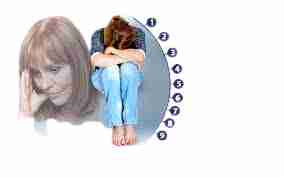 |
| Depression |
Dipression is a relatively rare condition characterized by depression that is only experienced in certain situations, such as while sitting or lying down. Dipression is similar to melancholia in that it is also characterized by depressed mood, but unlike melancholia, dipression is not accompanied by a loss of interest in daily activities. The cause of dipression is not well understood, but it is believed to be due to a disruption in the body’s normal balance of sodium and potassium. When sodium is in short supply, the body will pull it from wherever it can, including the cells that produce serotonin.
Dipression, also known as downregulation, is a clinical sign of depression in which certain parts of the brain become less active than usual. The parts of the brain involved in processing visual, auditory, and somatosensory information become less active in dipression. The severity of dipression varies from person to person and is typically visible in the form of a specific symptom. Dipression can be caused by a variety of factors, including brain injury, genetic abnormalities, and drug use.
 |
| Depression |
Clinical Dipression is a term used to describe a change in the natural course of depression that is characterized by the rapid onset of symptoms that spread and affect multiple areas of functioning. It is sometimes referred to as “rapid cycling” or “cycling” depression. Because there is no single clinical presentation, it can be challenging to know when to make the diagnosis. While symptoms of depression can vary, clinical depression is diagnosed when a person experiences five or more symptoms of depression, as defined by the Diagnostic and Statistical Manual of Mental Disorders, 5th Edition (DSM-5), in a 12-month period.
anti dipression
With the rise of the internet, we have seen an increase in the amount of information that is available to us. This has allowed the spread of ideas across the world, at a speed never seen before. Unfortunately, this has also allowed the spread of misinformation and lies at an even faster rate. This has led to a phenomenon that is becoming more and more common, the spread of anti-ideas.
 |
| Depression |
When I was about five years old, I realized that I was different. I didn’t really understand what the difference was between boys and girls, but I knew that I didn’t fit in with the other kids. I was smaller than the other kids, and I liked to wear dresses and makeup. I didn’t understand why I was picked on for being different, but I knew that I had to hide who I was in order to fit in.
Actually, depression is a state of mind, not a condition. You can experience many different kinds of depression, each with a unique cause and effect on your life.
 |
| Depression |
Anti-dipression is a type of depression that is caused by the brain not receiving enough oxygen. It is commonly caused by a medical condition, such as a tumor, blocked arteries, or an infection. However, it can also be caused by stress, anxiety, or other disorders. This type of depression is often treated with medications, such as antidepressants, that increase the amount of oxygen the brain receives.
Dipressive
Dipressive disorders are characterized by a combination of symptoms, such that one primary symptom dominates the individual’s experience of the disorder. This primary symptom can be either a positive or negative experience. Dipressive disorders can involve emotions, such as melancholy, but they also have physical symptoms, such as fatigue, headaches and muscle aches. While the most common dipressive disorder is depression, the others include dysthymia and bipolar disorder.
Dipressive disorders have been defined as conditions that cause a loss of mood, often described as a feeling of depression, with little or no improvement over time. While these disorders are often associated with major life changes, such as the end of a relationship or a job, they can also develop seemingly without cause. Some of the more common dipressive disorders include: depression, anxiety, and bipolar disorder. Understanding dipressive disorders and their symptoms can help those who experience them to better manage their condition and live happier lives.
Dipressive disorders are characterized by a lack of motivation and energy. Patients with dipressive disorders have a lack of interest in usual activities, and often appear sad, anxious, or depressed. They often feel lethargic, have a decreased appetite, and lose weight. In some cases, they may even experience a decreased level of consciousness.
 |
| Depression |
When I was growing up, my parents often told me that I was too sensitive, that I should learn to be more resilient. They, like many people, believed that sensitivity was a sign of weakness. But sensitivity is a remarkable and important quality, one that can help us to bond, to empathize, and to be in tune with our emotions. Research has shown that sensitivity is linked with a number of health benefits, including better immune function, greater happiness, and lower risk of depression.
Dipognitive: A person characterized by a tendency to think negative, complex and often exaggerated thoughts. Dipositive: A person characterized by a tendency to think positive, simple and often unrealistic thoughts.
postpartum dipression
Postpartum depression is a disorder that affects a woman’s mood and emotions after childbirth. Sometimes called postpartum blues, postpartum depression is a collection of symptoms that interfere with a woman’s ability to function. It is the most common cause of depression in women during and after pregnancy. Postpartum depression often goes undiagnosed and untreated, which can cause long-term problems for both mother and child.
 |
| Depression |
Postpartum depression is a type of depression that affects women in the weeks and months after they give birth. It is also known as postpartum depression, puerperal depression, and maternity blues. Postpartum depression has the same symptoms as regular depression, including sadness, anxiety, and feeling hopeless. The difference is that postpartum depression occurs when a woman has a baby. ------------
postpartum depression, also known as postpartum depression or postpartum disorder, is a type of depression that occurs in women after they’ve given birth. It’s a common occurrence, affecting an estimated 1 in 7 women. Because the symptoms of postpartum depression are similar to those of general depression, it’s often difficult to diagnose. The most common signs of postpartum depression are: persistent sadness, loss of interest in activities that used to bring you pleasure, changes in appetite, and fatigue.
When I was pregnant with my first child, I never considered that I would experience postpartum depression. I knew that women experienced postpartum blues, a short period of emotional sensitivity after childbirth. But postpartum depression was something that happened to other women, women with less supportive husbands, women who weren't married, women who didn't have supportive families. I was none of those things.
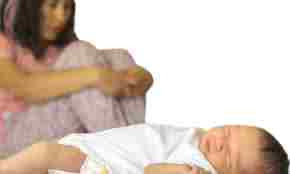 |
| Depression |
postpartum depression, also known as postpartum psychosis or postpartum mental illness, is a type of depression that occurs in women in the days and weeks following childbirth. Postpartum depression is a serious medical condition that requires professional help and medication. It often requires a hospital stay and is sometimes life-threatening. Women are at a higher risk for postpartum depression if they have a history of depression or anxiety, have had a miscarriage, have had a difficult delivery, or have a newborn who isn't feeding well.
Conclusion:
Depression is a serious mental disorder that should be treated by a doctor. There are many ways to prevent depression, including eating healthy, getting exercise, and having fun.

0 Comments
You should not use spam word in comments